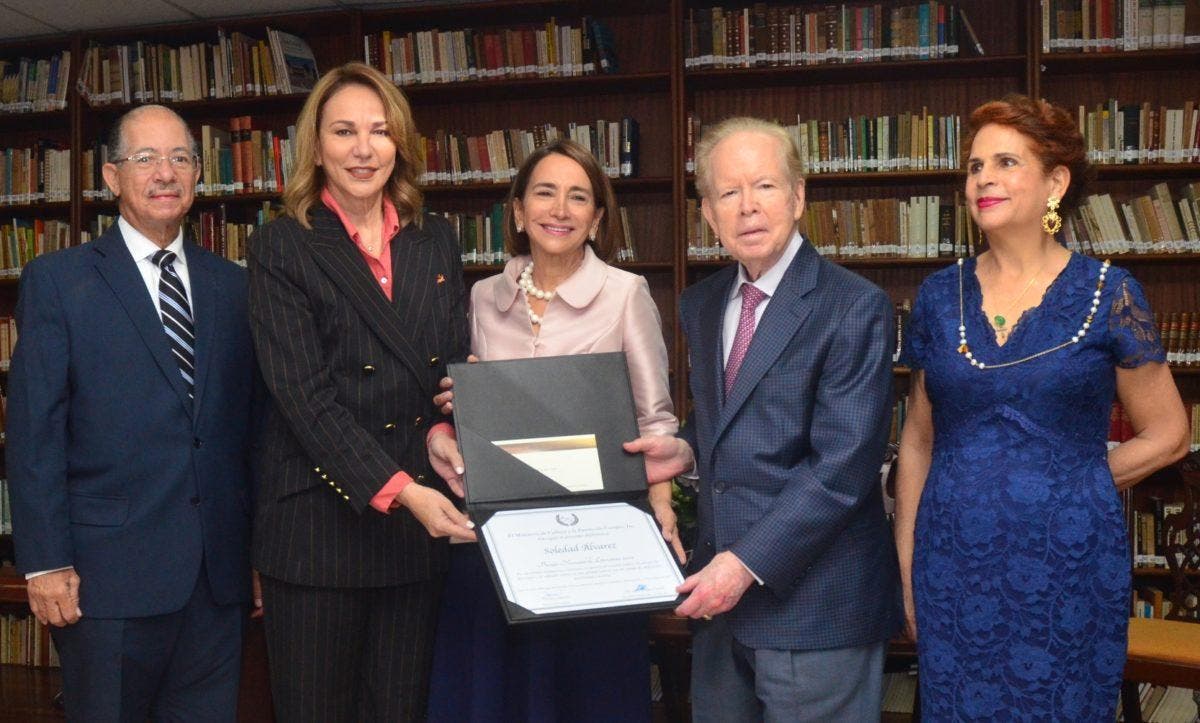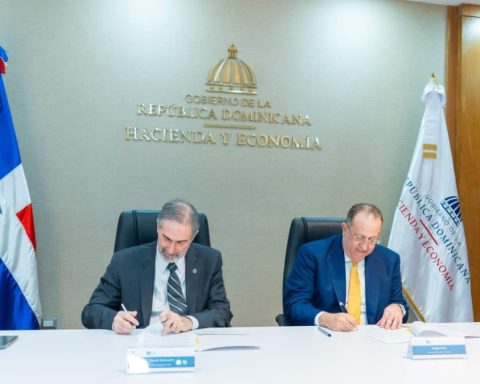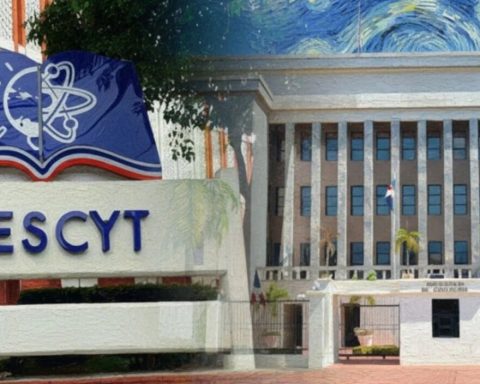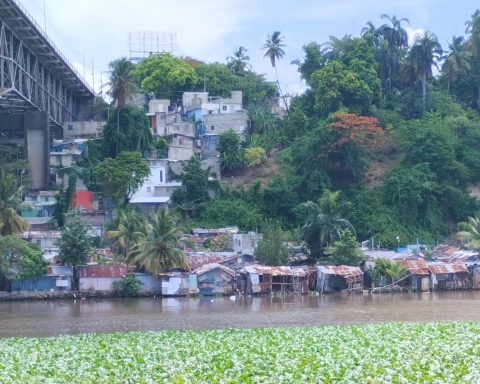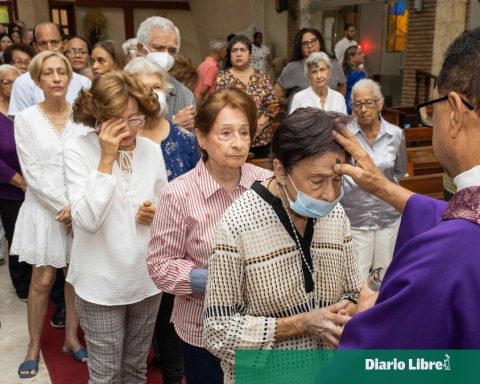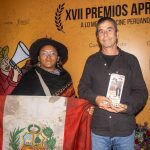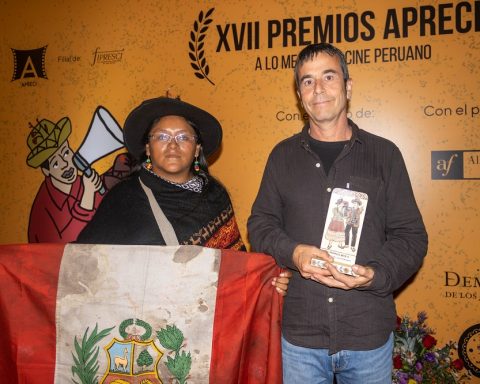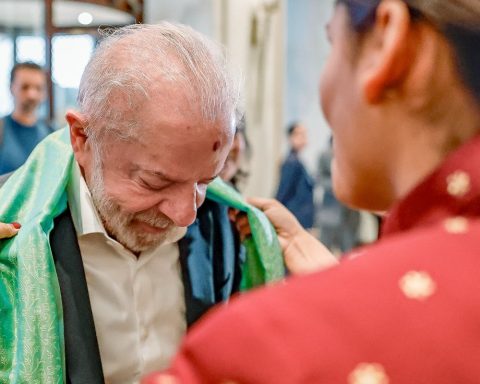The poet and essayist Soledad Alvarez yesterday received the National Literature Prize granted by the Corripio Foundation and the Ministry of Culture in recognition of his literary work of more than 50 years and his contributions to Dominican society.
The ceremony took place in the Manuel Rueda room of the Corripio Foundation. It was headed by José Luis Estrada, together with the Minister of Culture, Miracles German Olallain the presence of José Alcántara Almánzar, Angela Hernández and relatives and personalities from various fields.
“Thank you, always thank you. From my heart to the Corripio Foundation and its president and founder, José Luis Corripio Estrada-Pepín, whom I have admired and appreciated for so many years; to the Ministry of Culture, in the person of Milagros Germán Olalla; to the rectors of the Dominican universities, jury of the Prize, who have honored me with this important award”, expressed Alvarez after receiving the prize and recalling his beginnings in literature.
Alvarez received a certificate and a check for RD$2.0 million.
“Since her youth, Soledad Álvarez has maintained an uninterrupted literary activity that is witnessed by newspapers, magazines, individual works, and anthologies. She is a two-time winner of the Salomé Ureña de Henríquez Annual Poetry Prize for “The Intimate Seasons”highlighted Alcántara Almánzar.
-
miracles German -
Jose Alcantara Almanzar -
Angela Hernandez
Highlight your works
Germán highlighted the intellectual gifts of Álvarez whom he considered a philosopher, researcher, poet and essayist who has dedicated his life to pursuing truth and love, always on the side of the best interests.
“I want to remind Soledad Álvarez that at a difficult time in the country’s history, in the mid-1970s, she took to the streets, along with her beloved brothers Sonia Silvestre and Víctor Víctor, with the help of the experimental group Nueva Form, to build a song of hope”, said Germán.
Can read: Journalism summit announced to analyze challenges in the media
The National Prize for Literature has been awarded since 1990, recognizing great glory of Dominican literature.
Angela Hernández, winner of the 2016 National Literature Prize, read Alvarez’s portrait, whom she defined as a lively, cheerful person, with a pleasant manner, attractive conversation and an unusual ability to communicate with very different people.
“Three well-spaced collections of poems account for his poetry. Possible Flight (1994), The Intimate Seasons (2006) and Autobiography of Water (2015). Two won the Salomé Ureña National Poetry Prize. Different poems from those books have been translated into English, French, Italian and German, they appear in important international anthologies”, she maintained.
Soledad Alvarez, reading
“The influence of the school and the teacher on reading comprehension and the formation of the writer is irreplaceable,” said Álvarez after receiving the award. He recalled her mother’s influence on her love of reading and writing.
He expressed solidarity with the millions of people affected by war and social injustice.
He added that “and it is not necessary to delve deeply into the causes of the atony that our literature is going through, and in the spiritual emptiness that afflicts us to reach the abandonment of the humanities at all levels of schooling and the scarce presence in the classrooms of teachers. passionate and committed to the knowledge and defense of language and culture.
He affirmed that it is urgent to guarantee everyone’s right to a book and a school committed to critical thinking and imagination. “The writer “it is the books that he has read, but also the time that he has lived”.
“The awareness that we are human beings with a common destiny also endures, and the hope that not everything is lost,” said Álvarez, who concluded his words with the poem “Love Humanity”in honor of those affected by the conflicts, among these Russia-Ukraine.
They were among others, José Alfredo, Ana and Manuel Corripio Alonso; Jorge Tena Reyes, Julio César Castaños, Bernardo Vega, José Miguel Bonetti, Luis Molina Achécar, Irina Miolan, Cintia, Monica and Paola Vega, José R. Lantígua, and Milagros Ortiz.
